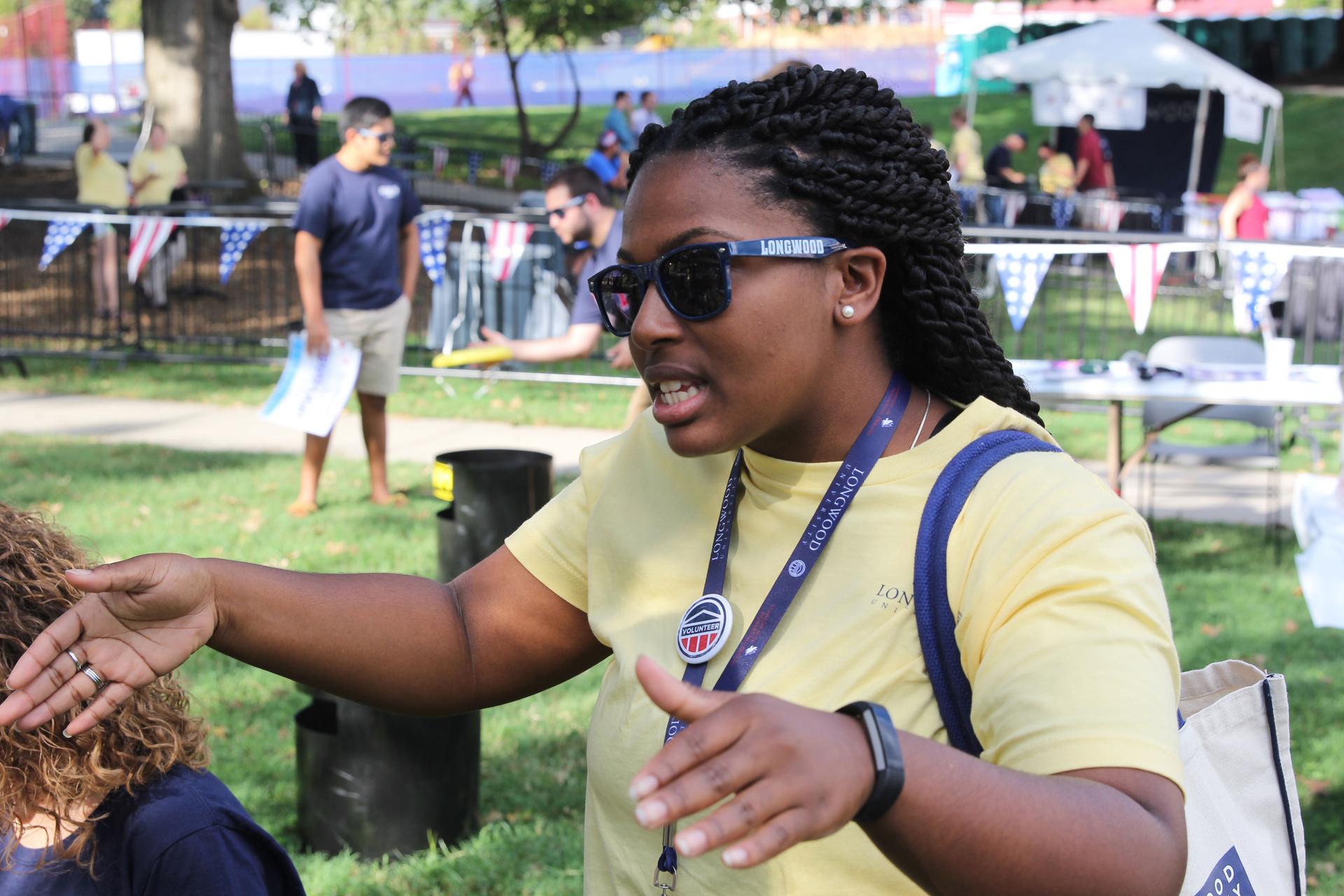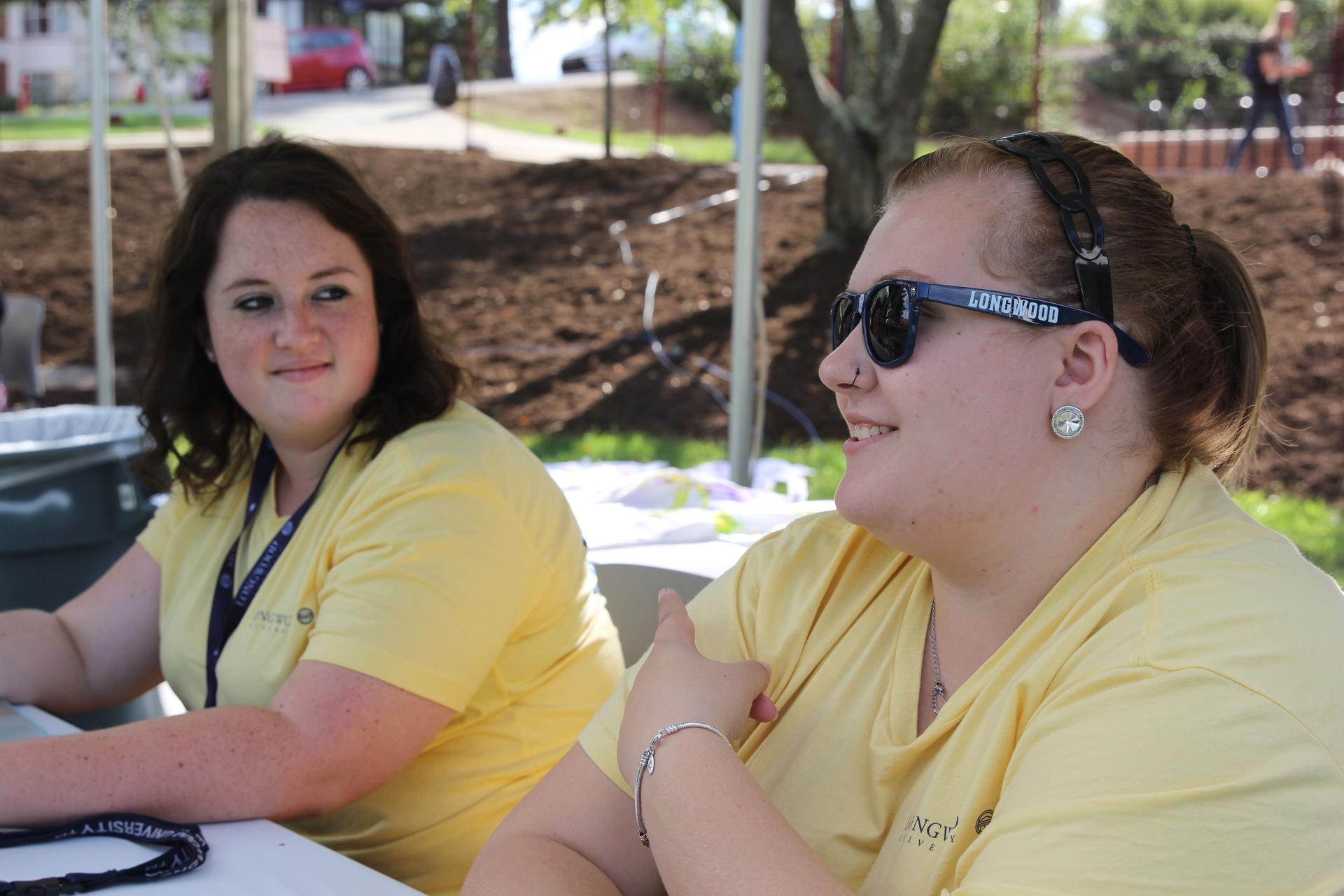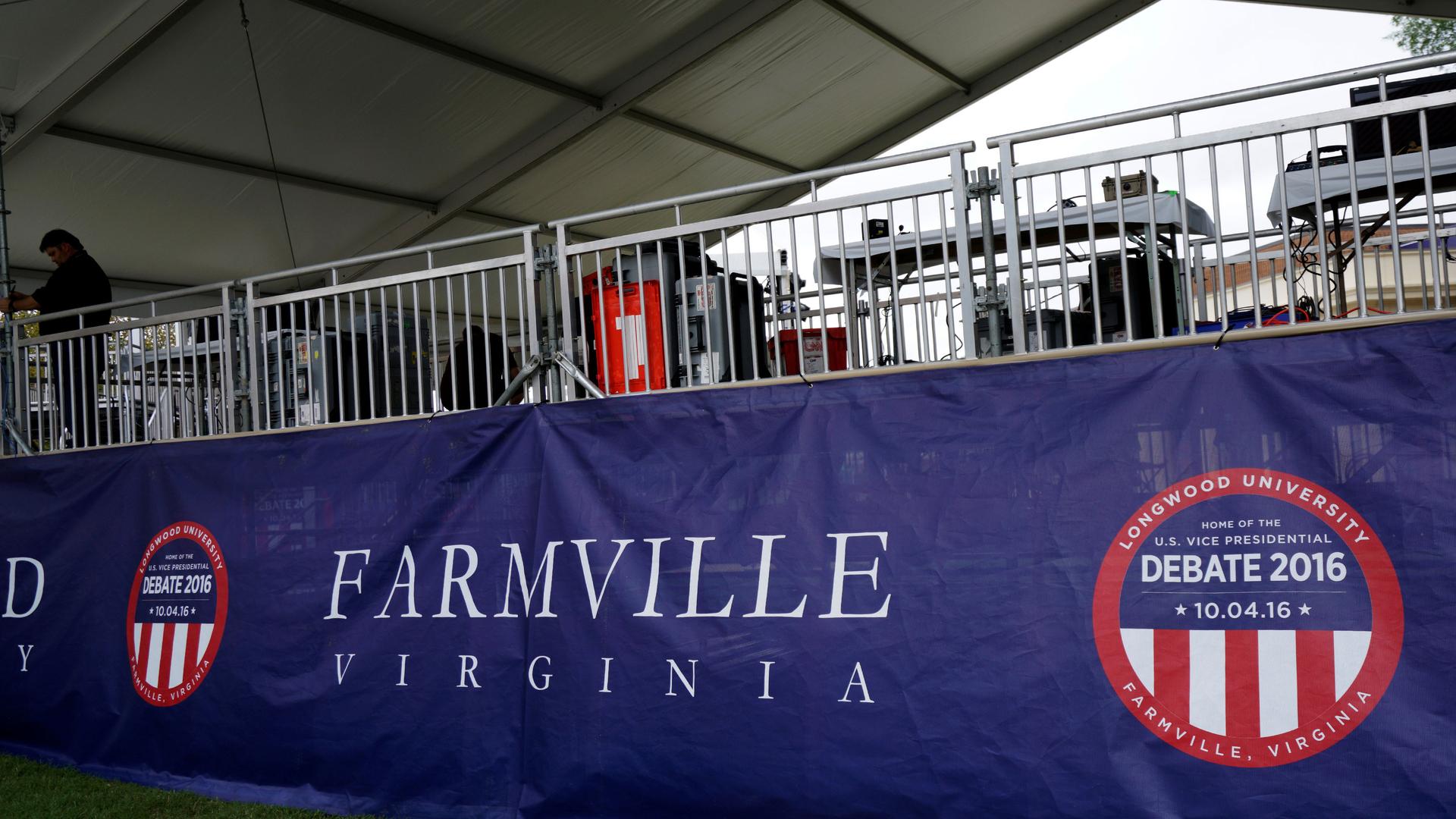Students in Virginia are ready to listen to — and judge — the VP candidates
A technician works on the TV media platform for the U.S. vice-presidential debate at Longwood University in Farmville, Virginia October 2, 2016.
Yes, there is a Farmville (not just on Facebook) and it is the host location for tonight’s vice presidential debate. The setting at Farmville’s Longwood University means young voters are getting a ringside view to how this historic presidential election could affect their lives for decades.
As Republican VP candidate Mike Pence and Democratic candidate Tim Kaine face off, Longwood’s 5,000 students are hoping they talk about issues that matter to young adults.
Take student debt, for example. Longwood is a public liberal arts school and students just had a tuition increase. “I’ll probably come out of school with $30,000 in debt, and I never want my child to have to do that,” says Alexandra Moushegian, a junior from Salem, Virginia.

“I’m hoping we’ll get a better system,” she says. ”Back when Bernie [Sanders] was around, he got me excited. I think he got every young person excited in a way that Hillary and Donald haven’t.”
“I have family members who are still in debt from college at 50 years old,” says Tonisha Pitchford a senior from Richmond. “I don’t want that to be me.”
Kaine has a home-field advantage. He is a familiar face to many of the students. He started his political career as a city councilman a little over 60 miles from Farmville. Longwood University students say his time as mayor of Richmond, governor of Virginia, and then as one of the state's senators gives him credibility. His opponent has also been a governor and senator, though Trump running-mate Mike Pence hails from comparatively distant Indiana.
READ MORE: How millennials in DC watched — and responded to — the first debate
The students in Farmville, a town of 8,000, are keenly aware of generational differences in the issues they expect to come up in the debate.
Mikayli Ballhaus, a sophomore from Fredericksburg, Virginia, says her generation is turned off by statements they perceive as anti-Muslim or anti-black. “It puts a lot of hate out that a lot of the younger generation doesn’t understand,” Ballhaus says. “I guess that’s how [Trump] was raised or how he sees things, but with my age group, we’re very inclusive with everybody.”
Moushegian added that she thinks current social justice movements, like Black Lives Matter, feel urgent and fresh to millennials, while older generations don’t get it.
“Because people in older generations saw the civil rights movement, some of them think it’s over and aren’t taking this seriously,” Moushegian says. “They thought they dealt with it. With our generation, this is the first time we’re going through this experience.”
READ MORE: Millennials have to wonder: Have baby boomers ruined everything?
Compared to older generations, millennials are less interested in politics and may vote at lower rates. Malina Foldesi, the leader of Longwood’s College Republicans, argues that young people’s lack of engagement in politics hurts her generation.
But this election campaign may yet spark a revival in civic engagement among young people, with nearly three-quarters of voters under 30 saying they have given a lot of thought to the election in a Pew Research Center survey — 15 percent higher than in 2012.
That same survey found that only 23 percent of young people are happy with their choices for president in 2016. That compares with 60 percent or higher young voter satisfaction in the last two elections. Still, Longwood students on campus for debate week argue that their generation cares deeply about politics — just in a different way than the baby boomers.
READ MORE:Here’s why young adults want third party candidates in the presidential debates
“I can get out what I have to say with the press of a button,” Pitchford says. “In the past it was harder to share opinions on political issues, but now we can speak up so easily. People say young people aren’t interested in politics, but we’re the ones sharing our opinions online. Everyone I know was on Twitter during the first debate — we’ll all be there for this one, too.”

Taylor Hogg, a senior, says she feels a “sense of pride” in exercising her right to vote for the first time in this election. Others say this election is about the world they will inherit.
“This election will affect me when I’m going into the working world as an adult,” Moushegian says. “I think that’s why I’ve been paying more attention.”
Young voters at Longwood University don’t share the same opinions on all of the issues they care about, but many share a desire to play a part in this election.
“This is something I’m going to look back on in 50 years and tell my grandkids about,” Bell says. “It’s cool to be a part of history.”
Editor’s Note: This story was produced by Washington Program reporters from Northwestern University's Medill School of Journalism.
Join us for a week of The UnConvention events in New York City from October 17-21, exploring the issues and views of millennials, in partnership with 92Y and Mic.
For more of PRI's UnConvention election coverage, click here.
